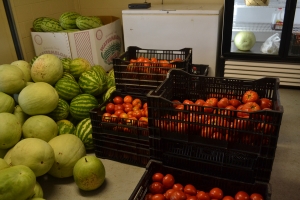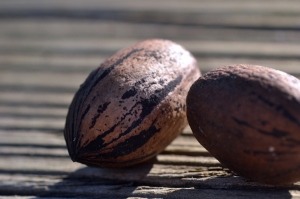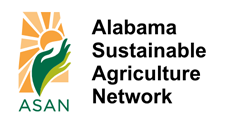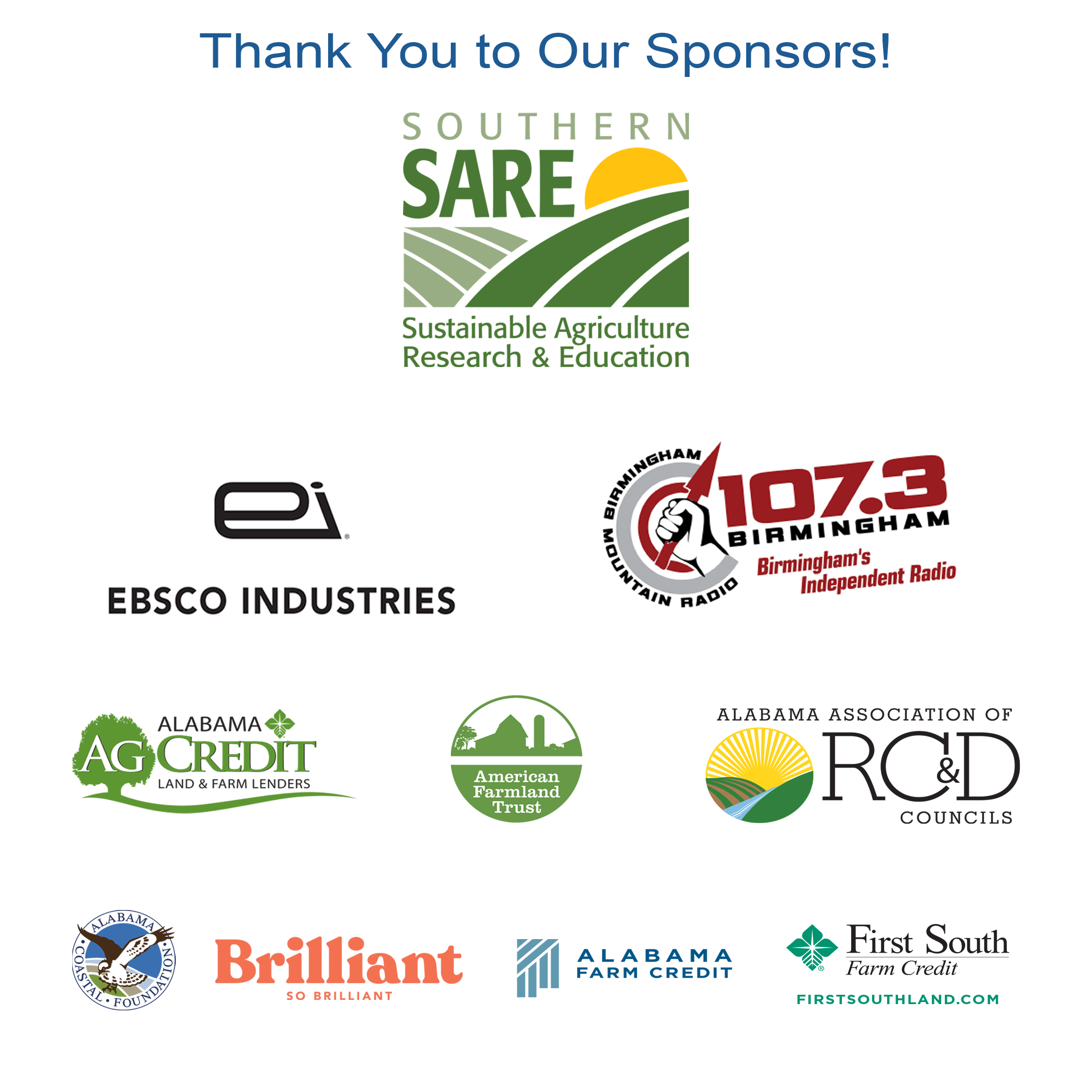This is the full-length version of an article that appears in the Fall 2016 issue of the ASAN Update, our quarterly print newsletter. Question 1 appears exactly as it does in the newsletter. Question 2 appears in this blog post with additional details that were cut in the newsletter due to space constraints.
This is the first in a “Policy Corner” series that will continue so long as there are questions submitted and legal experts available to help answer them. If you have questions relating to agricultural or food-related laws or policies, you can submit them to [email protected] anytime with the subject line “Policy Corner.” Please see the disclaimer below before submitting your question.
POLICY CORNER: BUSINESS LICENSES AND SALES TAX
By Sheree Martin
Question: Do I need to purchase a business license?
Legal Disclaimer: This column is provides general information about farm and agricultural related law in Alabama only and does not constitute legal advice. If you have a specific question you should consult your attorney or an attorney licensed to practice law in the state where your farm is located. Every situation is unique and legal outcomes depend on the facts and circumstances of each situation, as well as applicable laws, regulations, administrative procedures, and jurisdictions. You should not act on or rely on any information provided in this column without first seeking the advice of your own attorney.
Well – surprise – it depends on what you’re selling and where you are selling it.
Generally speaking, farmers who grow any type of agricultural crop outside the municipal limits of an incorporated area are not required to buy a farm business license from the state. The same is true of livestock ranchers and producers. If you are selling your farm products inside the limits of an incorporated area (hereafter sometimes called a “municipality” or “city”) then whether you need a business license from the city depends on the details of what you are selling. If you are the grower and you’re selling ONLY the actual produce of your crops as harvested—without changing it into something new and/or improved—then you don’t need a business license. In fact Ala. Code § 11-51-105 (1975) actually prohibits cities and towns from requiring a business license, in this case.
If you are selling processed or value-added products, such as juices from your fruits, lacto-fermented vegetables, cheeses and other processed dairy products, canned pickles, jellies and jams, wreaths and floral arrangements, boiled or roasted nuts, etc, then you may have to purchase a business license to sell those products inside a municipality. The key is whether the processed or value-added products “have been substantially processed or commercially bottled, packaged, or canned.”
If your farm’s produce HAS been “substantially processed or commercially bottled, packaged or canned” (more on what that means, in the question below about sales tax) then according to the Alabama State Attorney General the exemption doesn’t apply (See Attorney General Opinions AGO 2000-120 and AG No. 90-00296). That means a city could impose a license requirement through its municipal licensing ordinance process.
To summarize, if you are directly selling substantially processed, value-added products inside the limits of a municipality, you need to check with the license office of each town where you sell processed or value-added products to see if a license is required (it probably is).
Two other factors might trigger a requirement that you purchase a municipal business license. One is related to deliveries of farm products into a municipality (separate from the direct sale of the farm products) and the other would apply if you operate a farm “store” within the municipal limits.
Delivery License:
Ala. Code § 11-51-194 (1975) provides that municipalities can impose an annual delivery license fee of up to $100 for businesses that deliver into a city but do not otherwise have a physical presence in the city. If you regularly deliver value-added products to a reseller (like a grocery store or restaurant) located in a municipality you should check with each city to determine if there’s a delivery license that might be applicable.
The argument can be made that Ala. Code § 11-51-105 – remember, the one prohibiting municipalities from requiring a business license for growers selling crops exactly as harvested – supersedes this provision about delivery licenses, for those same growers. So, most likely the delivery license fee provision would only apply for products that have been “substantially processed.”
Farm-Owned Stores Inside the City Limits
If you set up a farm owned/operated store that is located within a municipality, you may also run into business license requirements that are distinct from direct sales by a farmer. That topic is beyond the scope of this response.
Zoning Sidebar: If you are growing crops inside the incorporated area of a municipality for anything more than a backyard garden for personal consumption, make sure you’re in compliance with the town’s zoning ordinances and related regulations. If you have farm-related zoning questions, let ASAN know and we might be able to address zoning in a future column (although we can’t answer specific legal questions or give legal advice).
Health Department Regulations: If you’re selling processed food and/or beverage products, you also have to comply with Health Department Regulations and licensing procedures. This question does not address those health department rules, regulations or licensing requirements.
Question: Do I have to collect and remit sales tax on the farm products I sell?
Legal Disclaimer: This column provides general information about farm and agricultural related law in Alabama only and does not constitute legal advice. If you have a specific question you should consult your attorney or an attorney licensed to practice law in the state where your farm is located. Every situation is unique and legal outcomes depend on the facts and circumstances of each situation, as well as applicable laws, regulations, administrative procedures, and jurisdictions. You should not act on or rely on any information provided in this column without first seeking the advice of your own attorney.
This question takes a look at Alabama sales tax exemptions with a focus on sales BY farmers, ranchers, growers. As with most matters of law and taxation – to no one’s surprise – the answer is complex and it depends on who’s doing the selling and what is being sold. This answer is intended to provide a big picture overview of the Alabama law related to sales tax on farm-produced and farmer-sold produce and related farm products. In an attempt to make it easier to follow, this response does not address the “use tax” counterpart of Alabama’s tax law.
There are also some exemptions available that exempt farmers from paying sales tax on certain types of purchases, but those are not covered here.
As a starting point, remember that unless there’s an exception, Alabama sellers are required to pay sales tax on the gross revenue from sales of products. Sellers add the required sales tax to the price of the product, collect the tax from the buyer at the time of sale, and then periodically “remit” the tax collected to the relevant state or city tax collection department in the time frame required by law. Thanks to several exceptions in Alabama law, farmers and livestock producers are able to sell certain categories or types of farm products without having to collect and remit sales tax on those particular sales. This column will focus on the two main statutory exemptions available to farmers and livestock producers regarding the sale of agricultural products to consumers.
- Exemption #1: This one covers sales of livestock, poultry and “other products of the farm, dairy, grove or garden, when in the original state of production or condition of preparation for sale, when such sale or sales are made by the producer or members of his immediate family or for him by those employed by him to assist in the production thereof.” Ala. Code § 40-23-4(a)(5) (1975).
- Exemption #2: This one covers the “…sales of fruit or other agricultural products by the person or corporation that planted, cultivated, and harvested such fruit or agricultural product.” Ala. Code § 40-23-4(a)(44) (1975). It’s enough if you qualify for one of the two exemptions–you don’t have to qualify under both.
Sidenote: The reference to “Exemption #1” and “Exemption #2” is something I created to help with organizing this analysis based on the two main statutory exemptions I wanted to cover in this column. Your accountant and/or lawyer should look at the specific code sections I referenced above, rather than looking for anything called Exemption #1 or Exemption #2. This classification system probably doesn’t exist anywhere else.
Here on the ASAN blog, we’re going to delve a bit more into these exemptions, by taking a look at some provisions from Chapter 810-6-3 of the Alabama Administrative Code, which contains the regulations of the Alabama Department of Revenue. These will help us in interpreting these exemptions in the context of agricultural producers. In plain English, before the “fine print” explanations and exceptions:
If you plant, grow, and harvest crops you probably do not have to collect and remit sales tax in Alabama on the sale of your harvest, UNLESS you do some type of processing.
Washing and shelling is OK. Any other processing may cost you your exemption. Scroll down a bit for a list of examples of processed agricultural products that are NOT exempt from sales tax.
If you are a livestock producer selling meat and poultry (other than eggs), it’s more complicated. Scroll down a bit further for a more detailed discussion of Exemption #1 as it applies to livestock producers selling cuts of meat or poultry.
Before we dive into Exemption #1 and #2 as these apply to fruits, nuts, vegetables and other produce, eggs, milk, and value-added products let’s start with a quick look at farm-owned/operated stores.
Sales Tax & Farm-Operated Store Sales
If you operate a farm store, the sales tax question is more complicated. The big takeaway here is that if you operate something in the nature of a farm store, then some of your farm-produced items are not exempt from sales tax under Exemption #1. This is according to Regulation 810-6-1-.01(2)(a), which incorporates the precedent established in the case of Curry v. Reeves, 240 Ala. 14, 195 So. 428. Farm-operated store sales of fruits, vegetables and other produce under Exemption #2 should still be exempt from sales tax, assuming the other requirements are met. Farm store sales of eggs, milk, honey, and any type of meat would appear to not be exempt from sales tax due to Curry v. Reeves and Regulation 810-6-1-.01(2)(a). Beyond that brief overview, the details of sales tax and farm store sales are beyond the scope of this column.
Non-Crop Products & Exemption #1
Regulation 810-6-3-.01(2)(b) lists a number of examples of non-crop agricultural products that ARE eligible for sales tax Exemption #1, provided they are sold directly by the farmer producer (other than through sales at a farm-operated store) and otherwise qualify for Exemption #1. These include:
- Milk
- Eggs
- Bees
- Honey
- Vegetables & Other Produce, Legumes, Fruits & Nuts
Generally speaking, if you don’t process farm-grown crops, fruits, or nuts you should be exempt from collecting and remitting sales tax on these items, assuming you’re the grower and the seller is the producer, immediate family, etc. “….An agricultural product is no longer in its raw, unprocessed form if it is cooked, boiled, roasted, or mixed or compounded with ingredients other than additional exempt agricultural products.” Regulation 810-6-3-.01(4)
Washing, Shelling, Cracking is OK
Produce, nuts, fruits, beans, etc. can be washed and shelled or cracked. Regulation 810-6- 3-.01(4)(a) states: “Examples of prepared agricultural products which do not lose their exempt status when they otherwise qualify for either or both of the exemptions…are:”
- Raw pecans when cracked or shelled
- Raw shelled peanuts
- Raw shelled peas, beans, or butterbeans
- Raw shucked corn
- Raw washed fruits or vegetables
The Types of Processing That Will Cost You An Exemption
Regulation 810-6-3-.01(4)(b) gives a list of specific agricultural products that are not exempt from either Exemption #1 or Exemption #2:
- Apple cider
- Boiled or roasted peanuts
- Candy
- Cane or sorghum syrup
- Fruit pies
- Ice Cream
- Jellies and Jams
- Peanut Butter
- Pickled Peaches
- Pickles
- Roasted Pecans
To the extent you produce value-added products from the fruits, nuts and crops you grow on your farm, you are probably required to collect and remit sales tax to the State of Alabama unless another exemption applies.
Overview of Exemption #1 for Livestock Producers
Let’s start by revisiting the specific language of Exemption #1. This exemption applies to sales of livestock, poultry and “other products of the farm, dairy, grove or garden, when in the original state of production or condition of preparation for sale, when such sale or sales are made by the producer or members of his immediate family or for him by those employed by him to assist in the production thereof.” Ala. Code § 40-23-4(a)(5) (1975). There are three factors applicable to sales tax exemptions for livestock producers under Exemption #1:
- What: Sales of livestock, poultry and other products of the farm….;
- How: “In the original state of production or condition of preparation for sale”; and
- Who: The seller must be the producer, the producer’s immediate family members, or employees hired for farm production work.
“How” is the factor that sparks the most uncertainty. The law itself doesn’t explain what’s meant by the phrase: “when in the original state of production or condition of preparation for sale.” We get some clarification of this in Regulation 810-6-3-.01. Regulation 810-6-3-.01(4) says: “Sales of agricultural products which otherwise qualify for one or both of the exemptions….above, do not lose their exempt status if the products, retain their raw, unprocessed form when prepared by the producer for marketing or merchandising. An agricultural product is no longer in its raw, unprocessed form if it is cooked, boiled, roasted, or mixed or compounded with ingredients other than additional exempt agricultural products.”
Cooked Meat
If you sell meat or poultry that has been cooked there’s no exemption from sales tax under Exemption #1. Regulation 810-6-3-.01(4)
Cured Meats, Jerkies, Sausages, etc.
If you sell meat or poultry that has been cured, dehydrated or processed into sausage or even patties, etc., this would likely disqualify you under Exemption #1. See Regulation 810-6-3-.01(4)
Raw, Unprocessed Meat & Poultry
The meaning of “raw, unprocessed” in the context of fruits and vegetables is pretty easy. “Raw, unprocessed” is a bit more vague in the context of meats and poultry. Raw means uncooked, so that much is clear. But whether or not raw-and-cut meat or poultry still qualifies as for the exemption is less clear. The question which is not specifically answered by the statute or regulations is whether Exemption #1 is available to a producer who has his/her livestock processed at a meat processing facility into individual cuts before selling the raw meat to a consumer at a farmers market or a casual, ad hoc sale (not at an on-farm store.) I submitted an informal inquiry to the Alabama Department of Revenue on this question and received a reply that the Department could not interpret the law. If you’re a meat or poultry producer who needs official guidance on this question, then you should work with your attorney and CPA to request a formal revenue opinion from ADOR.
Live Animals
If you are a livestock producer and you sell livestock as a live animal, the sale should be exempt from Alabama sales tax, provided your animal meets the definition of livestock. There are several different statutory provisions in Alabama that address the sale of live animals and those are beyond the scope of this column. In case you’re wondering….Regulation 810-6-3-.01(b) includes these live critters on the list of agricultural products eligible for Exemption #1: Catfish, minnows, bees, rabbits, and hamsters produced on farm.
Did you find this column helpful? Let us know!
This is the first in a “Policy Corner” series that will continue so long as there are questions submitted and legal experts available to help answer them. If you have questions relating to agricultural or food-related laws or policies, you can submit them to [email protected] anytime with the subject line “Policy Corner.” Please see the disclaimer above before submitting your question.




Good evening,
We own a cattle farm in Alabama and are trying to sell individual cuts of raw meat. So far the information we get from agencies is rather gray when selling outside farmers markets. I was hoping you had an update to that portion of your blog. Thank you.
Hey James! Thanks for reaching out. Our Farmer Support Coordinator will be emailing you some details shortly!